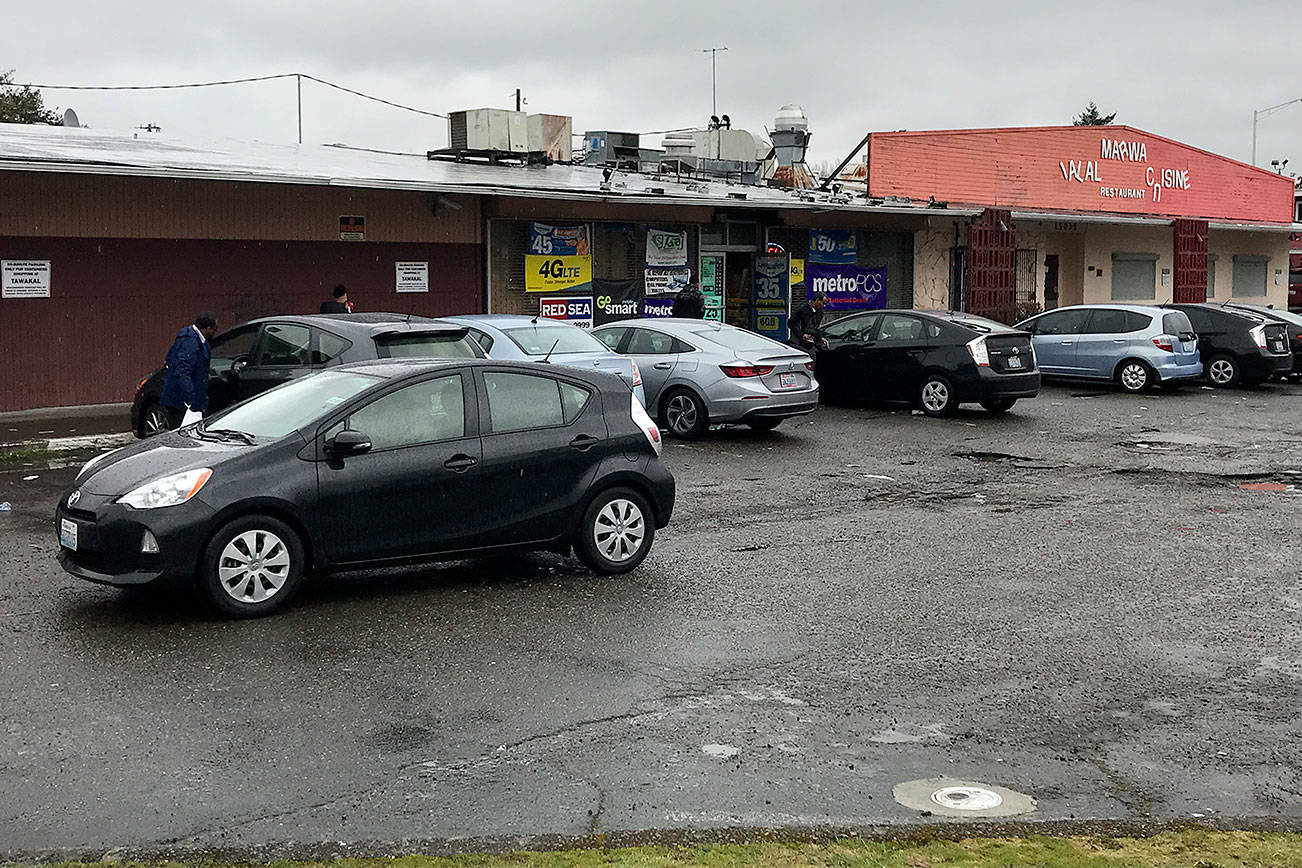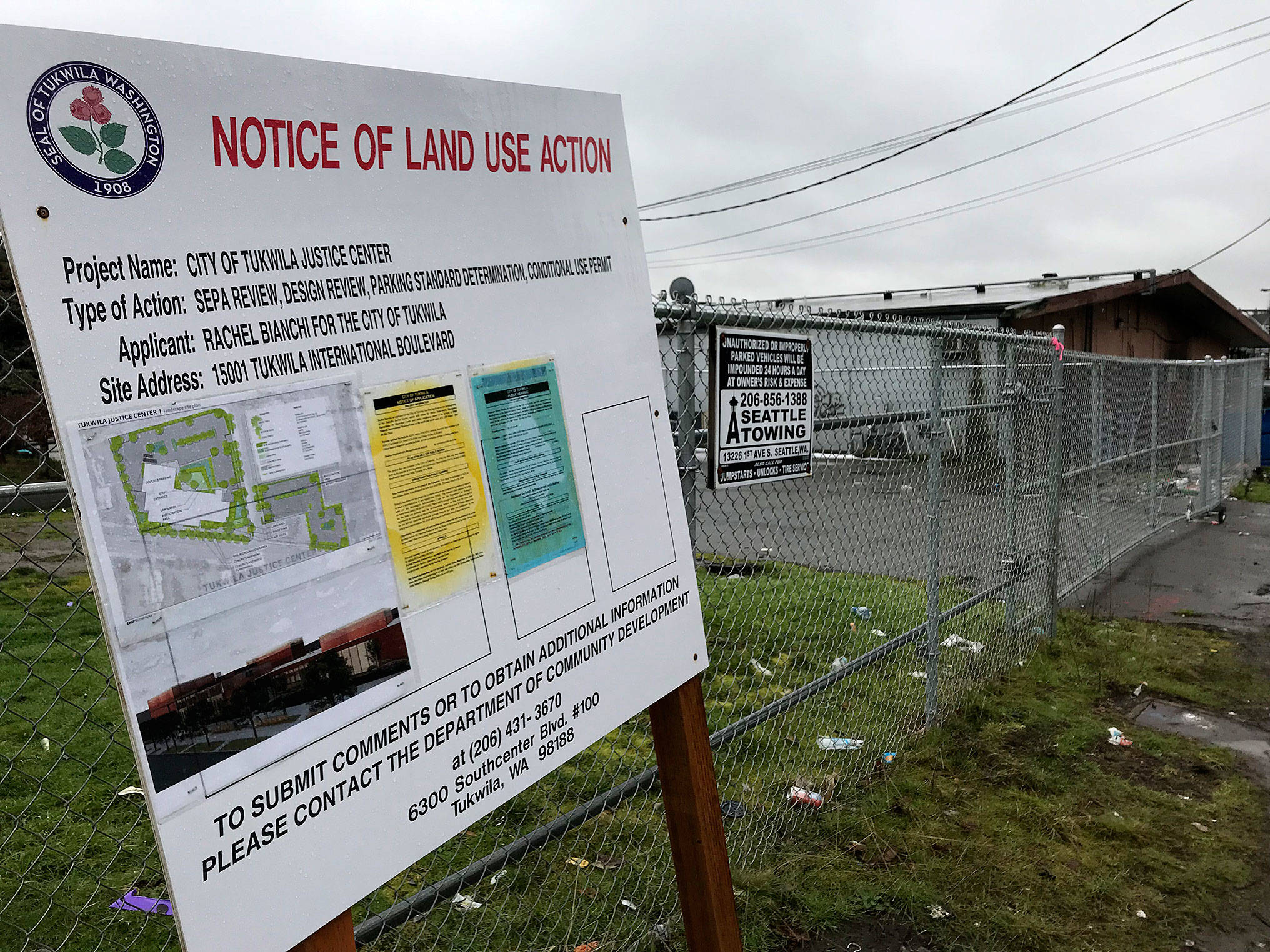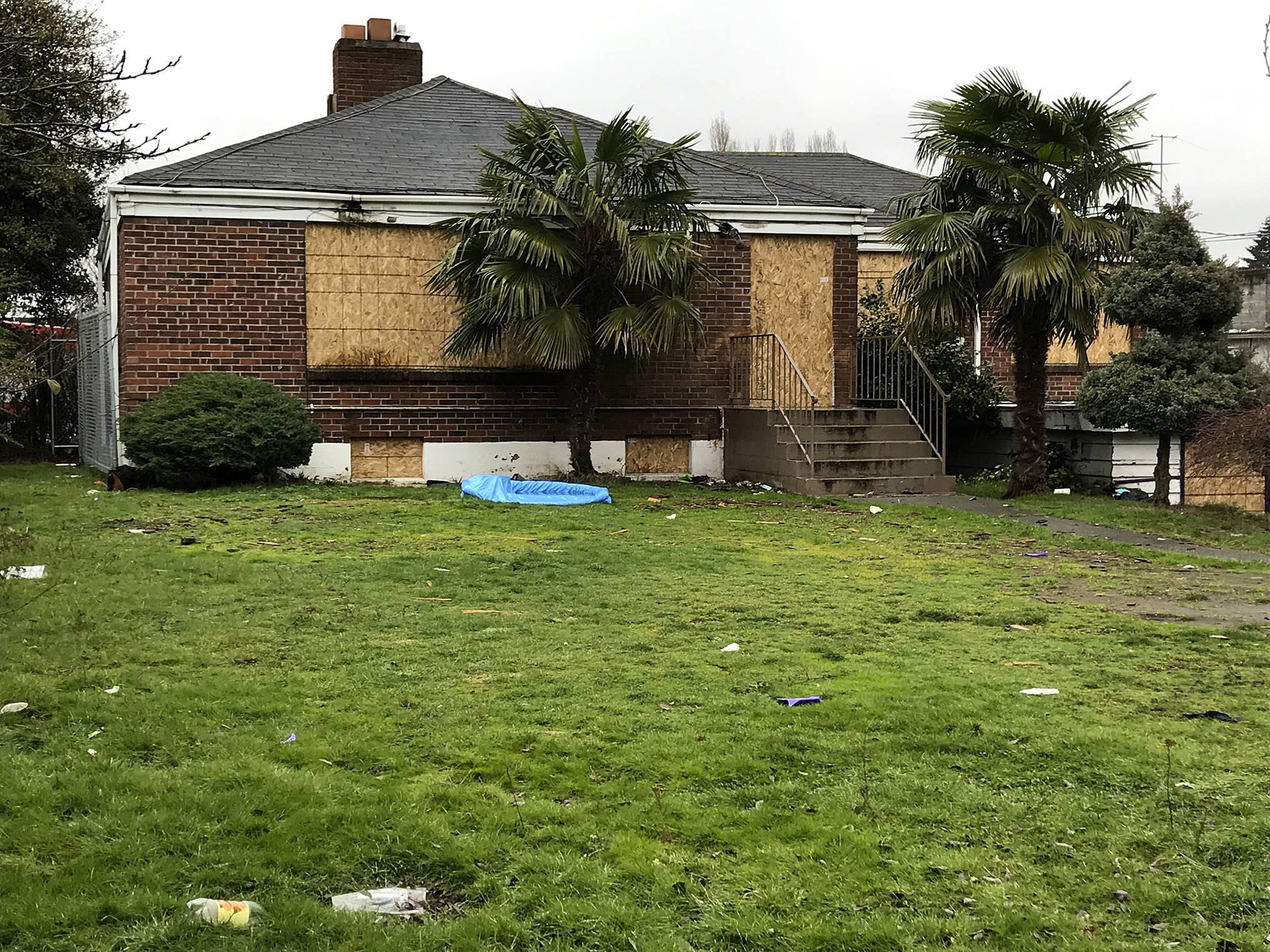As immigrant-owned businesses in SeaTac are facing displacement, similar businesses across the street in Tukwila have already begun the process of relocating in order to make way for a new justice center.
Unlike SeaTac, the city of Tukwila came to an agreement with more than a dozen businesses located along South 150th Street on the border of the two cities. Tukwila is planning on building a new justice center to house the city’s police department and municipal court; these facilities are currently housed at 6200 Southcenter Blvd. City Administrator David Cline said the new justice center, along with three new fire departments elsewhere in the city, was narrowly approved in 2016 with a $77.4 million bond. However, the cost for the justice center, which was originally pegged around $29 million, has ballooned in price to nearly $69 million.
“The market has far outpaced our original estimates, so the city re-balanced its financial plan,” Cline said.
The city cited an increase in development costs for the rising price tag, and will fund the more expensive project through fire impact fees on future newly constructed buildings; selling property that currently houses the old fire stations; and rededicating some of the city’s real estate excise tax toward its public safety plan. Contracts for building the justice center and one of the fire stations are out to bid, and the city hopes to begin construction in the next few months.
Construction will begin in April 2019 with the new justice center set to open in August 2020, according to the city.
The city had planned to use eminent domain in November 2017 to acquire the land for the justice center, which housed more than a dozen businesses, many of which are owned by immigrants. The city told the businesses they had one week to show up to a meeting before the city used eminent domain, said Margaret Cary with the Working Families Party of King County.
However, following media coverage, a lawsuit and organizing within the community, the city reached settlement agreements with all of the businesses.
“That actually ended up with, after many months, with some money transferred to these businesses, and there’s a transaction under way to sell city property to the businesses where they wish to build an international market,” Cary said.
Cline said Tukwila agreed to provide $1 million in total financial assistance to the business owners, though the city didn’t say how much each would get individually. The city originally offered them $5,000 each and one year to leave, KUOW reported in 2018. The city is also provided discounts on permitting fees if the businesses stay in the city and if the city reduces the cost of building permits. Cline said it is also working to help give the businesses an option to purchase and build on an old Traveler’s Choice Motel property, which was seized by federal agents in 2013.
Even though they’re in a better position than many of the SeaTac business owners, Khalid Jumale, owner of Tawakal Grocery, said the assistance from Tukwila may not be enough to keep him in business.
“It’s hard to relocate, to be honest, to find a spot,” he said sitting in the back of his grocery store and electronics shop, located on property sandwiched between Military Road and Tukwila International Boulevard.
Jumale said he’s run the store for 20 years and is facing the possibility of either being forced farther south in the county or closing if he can’t find a new spot. He hopes to find a location within the city to stay close to his customer base, even moving 5 miles could be too far. He said the Marawa Restaurant next door has already shut down and gone out of business because the owner couldn’t find a location — it had been there since 1998. The financial assistance the city is offering isn’t enough to fully relocate, and it would still be an expense to move his store, Jumale said.
Jumale is hoping the city grants an extension, buying more time to figure out what to do or help them establish an international market as well as include them in the planning process.
“Everybody wants to live the American dream,” he said. “It would be great if the city could include us in their plan.”
Cline said other businesses are already in the process of relocating, including the Fresh and Green Market, which is moving slightly north, and Wireless City, which is moving around six blocks away. All the business owners at the justice center location have to come to settlement agreements with the city.
Directly to the south in SeaTac, businesses face an even less certain future as the city bought and sold a business center that houses dozens of businesses, many of them owned and run by Somali immigrants. The former SeaTac Mayor Gene Fisher in 2010, when the city conned the previous owners into selling the property, was quoted as saying he hoped to price Somali immigrants out of “his neighborhood.”











